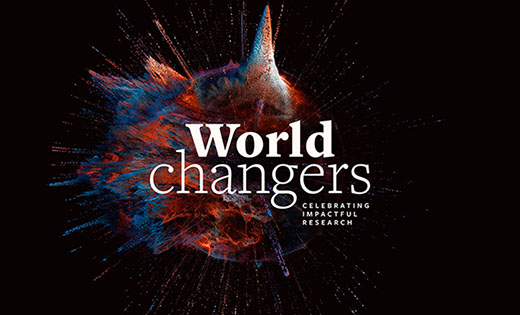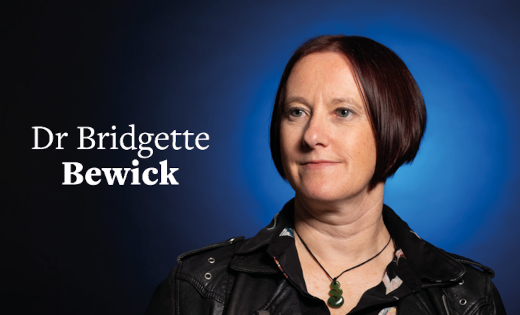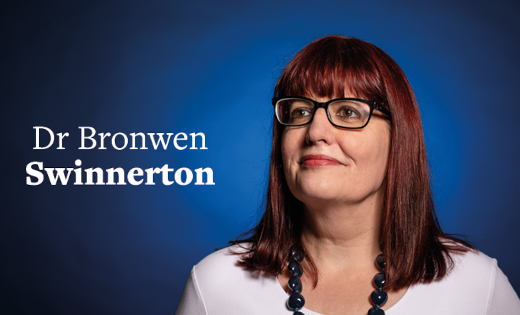World Changers: Celebrating impactful research | Researcher spotlight part three
We continue to look at the work of those who contributed to the collection of essays exploring research at Leeds, and how it is helping to change the world.
The essay collection was curated by Vice Chancellor, Professor Simone Buitendijk

World Changers: Celebrating Impactful Research features 13 essays by early-career researchers working across an array of disciplines to make the world a fairer and more equitable place.
The authors’ areas of expertise are wide-ranging and diverse, but the common thread tying them together is a vision of a better future for humanity, working together to tackle inequalities and create a fairer future for all.
In this series of features we’ll profile each researcher and their contribution to the collection in more detail.

Dr Bridgette Bewick was behind Why do we need a compassionate campus?
In the essay, she argues that by looking at how we teach, as well as what we teach, we can create a campus culture where everyone feels they belong.
She points out that a university experience based on compassion and collaboration will give today’s students a fighting chance of solving tomorrow’s challenges – and help us all move to a more inclusive, diverse and equitable future.
Dr Bewick said: “Being invited to contribute to the collection meant a lot to me. It was recognition that the University believes that we must find ways of embedding wellbeing into the student experience. It’s important we invest in making campus a kinder, more compassionate and inclusive place.
“Creating a more compassionate campus culture will not only benefit individuals but will also give today’s students a better chance of solving tomorrow’s challenges. I’m motivated by the belief that creating a compassionate campus culture can be the catalyst for a more inclusive and equitable society.”
As was the case with some of her fellow contributors, Dr Bewick was pleased with the wide reach the essay collection enjoyed.
She added: “The reaction to my essay has been uplifting. It’s been fantastic to discover there’s a whole community out there who share my passion.
“I was humbled by the personal stories students shared with me and it’s been a privilege to see how their words are changing perceptions of what is possible. The reaction to the essay has made me even more optimistic that together we can create a compassionate campus culture.”
Dr Bewick’s research interests lie in pedagogical wellbeing and student success. She is carrying out this work under a three-year Fellowship on ‘Pedagogical wellbeing and the Leeds Curriculum: The embodiment of wellbeing and the university experience’.
Understanding how we can embed compassion into the university curriculum is an integral part of her work, which seeks to improve and support the mental health and wellbeing of university students.
She said: “Services to support student mental health and wellbeing are a necessary part of the solution but in and of themselves are not sufficient to facilitate student success while at university.
“We have to develop equitable practices consistent with pedagogical wellbeing – doing so will be transformational and our work will truly make a difference.”
Read Why do we need a compassionate campus?

Dr Bronwen Swinnerton wrote Can digital technology open up university education for all?
In it, she examines the ‘digital divide’ affecting students in the UK and around the world, and what Leeds is doing to tackle these inequalities in accessing digital technology.
She said: “I feel very privileged to be part of the World Changers Essay collection.
“It has allowed my work to be accessible to a much wider audience, both in terms of the way in which it is written – for a more diverse, not necessarily academic, audience – as well as the dissemination as part of this project.
“I have noticed colleagues referring to it, and even got a mention at the 2022 Student Education Conference!
“It has encouraged me to think in more detail about the overarching themes in my research, of digital inequality and how we can use digital technology to be more, not less, inclusive, and the role of digital technology in achieving the Sustainable Development Goals.”
Besides its broad appeal, Dr Swinnerton has noticed that it has helped present other avenues of research to explore.
She added: “It has also given me increased enthusiasm and energy to work with colleagues across the University as I have become aware of links to other research that is relevant.
“On a practical note, I have found it really useful to send the link to those interested in my work, as it is more appealing to many than an academic journal article.”
Dr Swinnerton’s background is in education research, particularly around blended and online learning, and learning analytics.
She is currently deputy Director of the Centre for Research in Digital Education.
Read Can digital technology open up university education for all?

Dr Richard Tunstall contributed Reimagining impact: Creating an entrepreneurial education that makes a difference.
The piece explores how connecting students to real-world experiences builds their confidence as active problem solvers and provides communities with a creative resource.
He said: “The invitation to contribute to the collection provided me with the opportunity to think about the strengths of the University in student enterprise and active learning, and how the University’s new Strategy provides a new impetus for these.
“Writing the essay gave me the opportunity to bring together my understanding of the existing work being undertaken at the University, alongside international research in this area, to create a thought piece that acts as a platform for discussion and debate about what the future could look like.”
Dr Tunstall’s research looks at experiential learning in entrepreneurship education and how social learning influences entrepreneurial behaviour in organisations.
He is also Academic Director for Enterprise at Leeds, and Associate Professor of Enterprise for the Centre for Enterprise and Entrepreneurship Studies at Leeds University Business School – as such he was keen for the piece to speak not just to research, but to practice as well.
He added: “My essay is based on my research and scholarship in the field, but also on existing practices in the University.
“In order to design the essay, I spoke to a range of practitioners for their thoughts on the topic to ensure that I was writing on themes that were relevant to the community.”
The way his essay has been received is already having an impact on future projects, too.
He said: “It has been fantastic to see my work being shared and discussed, and it has already been picked up by wider networks as part of broader debates about the future of entrepreneurial education.
“This is already informing my plans for future research, scholarship and practical collaborations in this area, and I hope it will provide a source of inspiration to others – both within the university and across our wider networks – in how we work together to achieve the ambitions set out in the University’s strategy”.
Read Reimagining impact: Creating an entrepreneurial education that makes a difference.
Be sure to check back on For Staff over the coming weeks for more in this series of features in which we’ll profile each researcher, and their contributions to the collection.
In the meantime, you can read World Changers: Celebrating Impactful Research on Spotlight.
The essays are also available as a audiobook series on our SoundCloud page.
Read more about Research Transformed and how we are enabling our research to thrive in the future.
Posted in: University newsResearch and innovationWhat next at Leeds?Fairer future for all